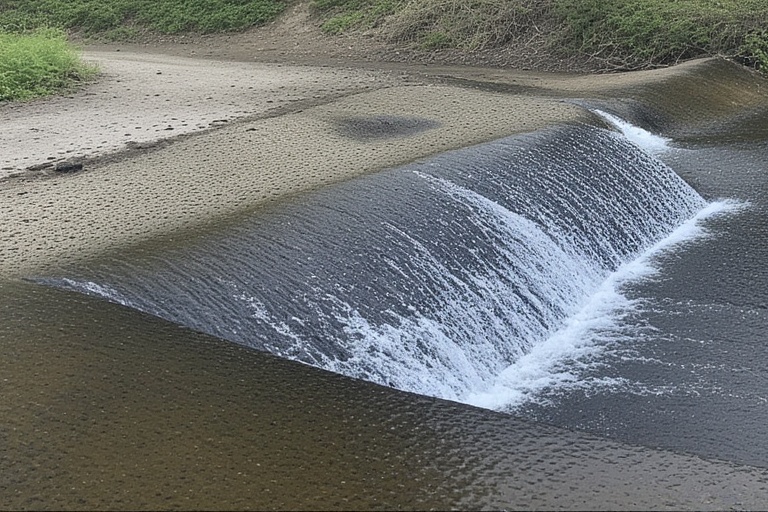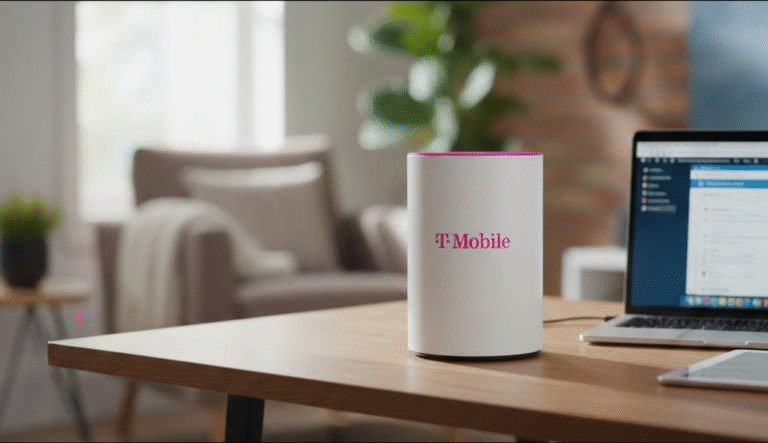
Pennichuck Water: Ensuring Quality and Sustainability in New Hampshire’s Water Supply
Introduction to Pennichuck Water
Pennichuck Water, formally known as Pennichuck Water Works, Inc., is a cornerstone of New Hampshire’s water utility landscape, providing clean, safe, and reliable drinking water to thousands of residents and businesses. Based in Nashua, Pennichuck Water serves a population of approximately 110,000 across southern New Hampshire, delivering high-quality water that meets or exceeds state and federal standards. With a mission to be a premier supplier of water in the region, Pennichuck Water has built a reputation for its commitment to public health, environmental stewardship, and sustainable water management. This article explores the history, operations, water quality efforts, and future initiatives of Pennichuck Water, highlighting its critical role in the community.
The History of Pennichuck Water
Pennichuck Water has a rich history dating back to its establishment in the 19th century. Founded to address the growing need for clean water in Nashua, Pennichuck Water has evolved into a sophisticated utility provider. In 2012, the City of Nashua acquired Pennichuck Water in a unique $200 million deal, making the city the sole shareholder while maintaining the company’s corporate structure. This acquisition ensured that Pennichuck Water remained a locally controlled entity, prioritizing the needs of the community over external corporate interests. Today, Pennichuck Water operates as a regulated utility under the oversight of the New Hampshire Public Utilities Commission, ensuring accountability and transparency in its operations.
Pennichuck Water’s Sources and Supply
Pennichuck Water draws its supply from a combination of surface water, groundwater, and purchased water from other utilities. The primary source is the Pennichuck Brook Watershed, which spans approximately 18,000 acres across five towns: Nashua, Merrimack, Amherst, Milford, and Hollis. This watershed is carefully managed to protect water quality and ensure a sustainable supply. Pennichuck Water has the capacity to produce up to 35 million gallons of water per day, more than enough to meet the demands of its customers, including large industrial users like the Anheuser-Busch brewery in Merrimack. The company’s ability to balance supply and demand while maintaining water quality is a testament to its expertise in water management.
Commitment to Water Quality
One of Pennichuck Water’s core priorities is delivering water that meets the highest safety and quality standards. The company conducts rigorous testing to ensure compliance with regulations set by the Environmental Protection Agency (EPA) and the New Hampshire Department of Environmental Services. According to the 2020 Consumer Confidence Report, Pennichuck Water reported no detectable levels of lead in its drinking water, earning an excellent rating from organizations like WaterZen. This achievement reflects Pennichuck Water’s proactive approach to monitoring and treating water to eliminate contaminants, ensuring that customers receive clean and safe drinking water.
Pennichuck Water employs advanced treatment processes, including filtration, disinfection, and pH adjustment, to maintain water quality. The company also invests in regular infrastructure upgrades to prevent issues like pipe corrosion, which can introduce contaminants like lead into the water supply. By staying ahead of regulatory requirements, Pennichuck Water ensures that its customers can trust the water they drink.
Watershed Management and Environmental Stewardship
Pennichuck Water’s commitment to environmental stewardship is evident in its extensive watershed management efforts. Since 1998, the company has conducted numerous watershed studies to monitor the health of the Pennichuck Brook Watershed. These studies focus on identifying pollution sources, tracking sediment movement, and assessing the overall health of the ecosystem. By understanding the factors that impact water quality, Pennichuck Water can implement targeted strategies to protect its water sources.
For example, Pennichuck Water has worked on restoration projects to mitigate the effects of urban development and agricultural runoff in the watershed. These efforts include stormwater management initiatives and partnerships with local communities to promote sustainable land-use practices. By prioritizing nature-based solutions, Pennichuck Water not only protects its water supply but also contributes to the broader goal of environmental conservation in New Hampshire.
Technological Innovations at Pennichuck Water
To enhance its operations, Pennichuck Water leverages cutting-edge technologies to monitor and manage its water systems. The company uses in-situ sensors and drone-assisted sampling to collect real-time data on water quality and infrastructure conditions. These tools allow Pennichuck Water to detect potential issues early and respond quickly to maintain service reliability. Additionally, Pennichuck Water employs geographic information systems (GIS) and hydrological modeling to predict water quality trends and plan for future needs.
These technological advancements enable Pennichuck Water to operate efficiently while minimizing costs for customers. By investing in innovation, Pennichuck Water ensures that it can meet the challenges of a growing population and changing environmental conditions.
Community Engagement and Education
Pennichuck Water is deeply committed to engaging with the communities it serves. Through initiatives like “Pennichuck Water Words,” a blog series written by employees, the company shares insights about the water industry and its operations. This platform fosters transparency and helps customers understand the complexities of water management. Pennichuck Water also supports citizen-science programs that encourage residents to participate in water quality monitoring, strengthening community ties and promoting stewardship.
By educating the public about water conservation and quality, Pennichuck Water empowers its customers to make informed decisions about their water use. The company provides resources on its website, including water quality reports and tips for reducing water waste, to help customers stay informed.
Pennichuck Water’s Role in Public Health
Access to clean water is a fundamental aspect of public health, and Pennichuck Water plays a critical role in ensuring that its customers have safe drinking water. The company’s efforts to eliminate contaminants like lead and other pollutants align with the Sustainable Development Goals (SDGs) for safe water and sanitation. By maintaining high water quality standards, Pennichuck Water helps protect vulnerable populations, including children and pregnant women, from the harmful effects of waterborne contaminants.
Pennichuck Water also collaborates with public health officials to address emerging concerns, such as the presence of PFAS (per- and polyfluoroalkyl substances) in water supplies. By staying proactive, Pennichuck Water ensures that its customers are protected from both known and emerging threats to water quality.
Future Initiatives and Sustainability
Looking ahead, Pennichuck Water is focused on sustainability and resilience in the face of challenges like climate change and population growth. The company is exploring ways to enhance its water treatment processes, reduce energy consumption, and expand its use of renewable energy sources. Additionally, Pennichuck Water is investing in infrastructure upgrades to ensure the long-term reliability of its water systems.
Pennichuck Water is also committed to addressing the impacts of climate change on its watershed. By integrating climate modeling into its planning processes, the company can anticipate changes in precipitation patterns and water availability, ensuring that it can continue to meet customer demand. These forward-thinking strategies position Pennichuck Water as a leader in sustainable water management.
Conclusion
Pennichuck Water is more than just a utility provider; it is a vital partner in the health and well-being of New Hampshire’s communities. Through its commitment to water quality, environmental stewardship, and technological innovation, Pennichuck Water ensures that its customers have access to clean, safe, and reliable water. By engaging with the community and investing in sustainable practices, Pennichuck Water is paving the way for a future where clean water remains accessible for generations to come. As the company continues to evolve, its dedication to excellence and public health will undoubtedly keep it at the forefront of the water industry.
FAQs
What is the source of Pennichuck Water’s supply?
Pennichuck Water draws its supply from the Pennichuck Brook Watershed, groundwater sources, and purchased water from other utilities. The Pennichuck Brook Watershed is the primary source, covering 18,000 acres across five towns in southern New Hampshire.
How does Pennichuck Water ensure water quality?
Pennichuck Water conducts rigorous testing and uses advanced treatment processes like filtration and disinfection to meet state and federal standards. The company also monitors its infrastructure to prevent contamination and publishes annual water quality reports.
Is Pennichuck Water’s drinking water safe?
Yes, Pennichuck Water’s drinking water is safe and meets or exceeds all regulatory standards. The 2020 Consumer Confidence Report showed no detectable lead levels, earning the company an excellent rating for water quality.
What is Pennichuck Water doing to protect the environment?
Pennichuck Water conducts watershed studies, implements stormwater management, and promotes sustainable land-use practices to protect the Pennichuck Brook Watershed. The company also uses technologies like drones and sensors to monitor environmental conditions.
How can I learn more about Pennichuck Water’s operations?
You can visit the Pennichuck Water website for resources like water quality reports, watershed studies, and the “Pennichuck Water Words” blog. These platforms provide detailed insights into the company’s operations and commitment to the community.





